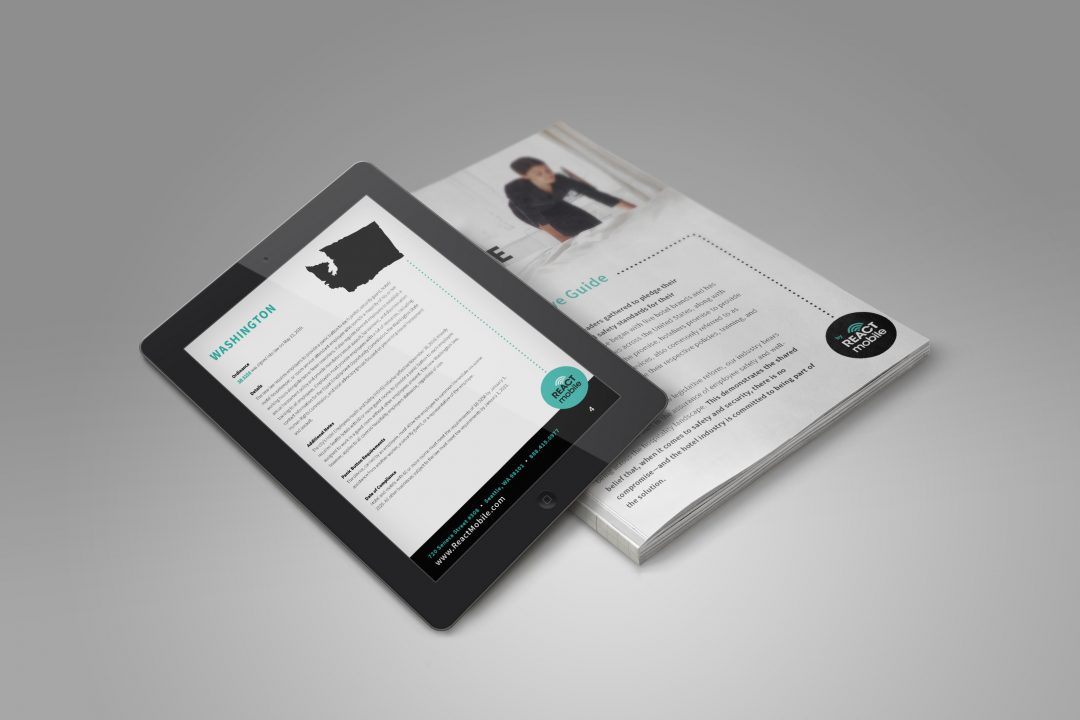A Safer Future for Hospitality
by Brandon DeCuir, on Feb 12, 2020 2:21:54 PM

Kent Beck, the famed American software engineer and the creator of extreme programming, once said, “The business changes. The technology changes. The team changes. The team members change. The problem isn’t change, per se, because change is going to happen; the problem, rather, is the inability to cope with change when it comes.”
The hospitality industry, at large, is rather familiar with this experience. Around the world, hotels are learning to cope with change swiftly, reimagining their business with the help of modern platforms, collaborative technology partnerships, and informed processes. Amidst this period of technological reform, the American Hotel & Lodging Association (AHLA) had one, integral goal in mind: Transform hotel staff safety, for the better.
Believing that when it comes to safety, there is no compromise, the AHLA partnered with hotels to implement The 5-Star Promise in 2018. This was a voluntary commitment by AHLA members to enhance policies, training and resources, including providing employee safety devices that together are aimed at strengthening the culture of employee and guest safety, with an emphasis on preventing and responding to sexual harassment and assault.
Hotels nationwide have made significant progress over the past year in deploying employee safety devices (ESDs), with next-gen panic buttons already provided in several markets, including New York, Washington, Chicago, Seattle and Miami Beach, with rapid expansion planned in the new year.
As part of our on-going commitment to this initiative, React Mobile has created a free, complete Legislative Guide which you can download here.
Legislative deadlines looming
Along with the voluntary safety policies, hotels are also required by law to protect their employees, and deadlines for compliance are looming.
The hospitality industry, as hoteliers are acutely aware, struggles with a notoriously high turn-over rate across staff. We’ve come to learn, with the influx of publicized staff reports and complaints, that much of this turn-over is associated with working conditions, and lacking safety standards for employees. Due to the overtly physical nature of most roles within the hospitality sector, along with the remote nature of job tasks, hotel staff are especially at risk of physical injury or, in some cases, assault.
The potential risk associated with hotel environments, along with pressure from hospitality unions, and the bad press that has impacted hotels that have ignored such revelations, has inspired legislative action around the United States. Those hotels which remain resistant to this surge of positive reform, do not only risk the implications of negative press and union backlash, but also face steep penalties.
Currently, local ordinances in states such as Washington, New Jersey, Illinois and parts of California have already signed in laws that require hotels to provide wearable/portable panic buttons to their employees at no cost. Miami Beach requires hotels to provide safety buttons or notification devices which offer GPS tracking to all hospitality staff.
More and more cities have initiatives on the table pending approvals, and panic button mandates have made their way into several collective bargaining agreements across the country.
Hotels that fail to comply, many by January 2020, will be fined. For a detailed view of state-specific requirements and applicable fines, download our full guide here.
Preparing for 2020
Now, as the legislation continues to change and expand, it’s ever-important for hoteliers to keep their finger on the pulse of these new hospitality safety standards. With each passing month, the 5-Star Promise seems to gain more momentum, with a legislative ripple effect making its way across the United States. As such, hoteliers are implored to remain vigilant in their understanding of requirements specific to their state, to avoid penalties associated with non-compliance.
With this in mind, React Mobile has compiled a complete legislative guide to ensure hotels in the United States have a better understanding of the current status and requirements of local ordinances, as the legislation continues to evolve and gain momentum.
Throughout the guide, we provide a complete timeline of legislative updates, and state-specific ordinance details and compliance specifications. With this information and the right processes in place, the path to hospitality safety compliance can be swift and, moreover, seamlessly implemented.
Learn more about upcoming legislative updates in our free guide:


